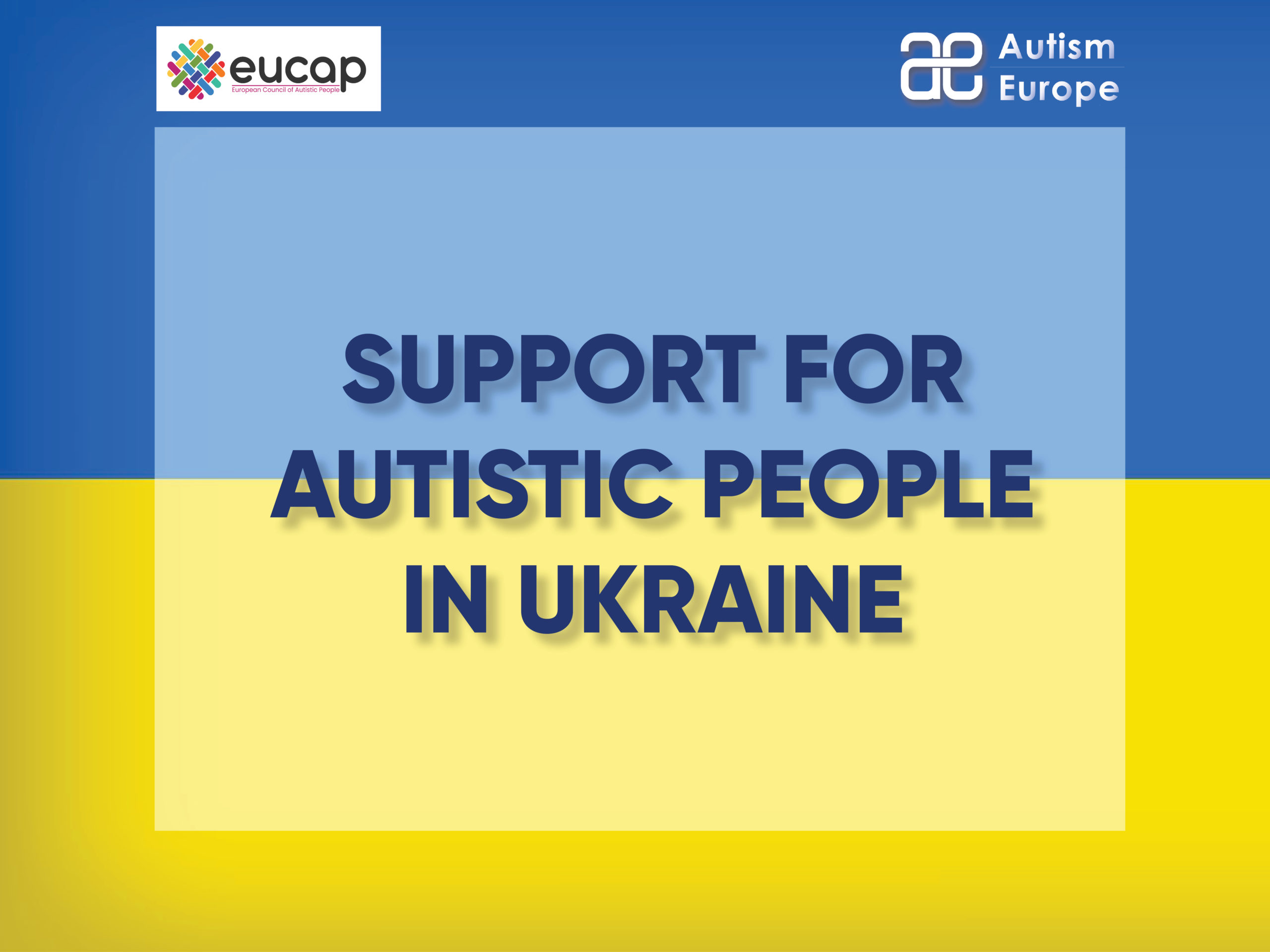
At the moment, autistic people and their families are largely invisible and underserved by humanitarian aid dedicated to supporting the people of Ukraine. We – Autism-Europe and the European Council of Autistic People – are calling on all political leaders, public authorities, and humanitarian actors to address the urgent needs of Ukrainian autistic people, including refugees.
At least 1% of the population is on the autism spectrum, therefore we can estimate that over 440.000 Ukrainians are autistic. Yet we know that they face a chronic lack of support that is exacerbated in the current context.
Autistic people and their families are particularly vulnerable during armed conflicts. Most autistic people generally need routine, familiarity, and a high level of predictability. Many of them are exceptionally sensitive to noise and other sensory stimuli. Stressful conditions and severe sensory overload can therefore trigger intense distress. They can also display unusual behaviours that might be misinterpreted and put them at risk. Many autistic people have co-occurring medical conditions, such as epilepsy, sleep disorders or gastro-intestinal problems.
Our partners in Ukraine have alerted us about the alarming situation currently faced by autistic people and their families:
- Autistic people and their families appear to be overlooked in some cases by humanitarian aid agencies, as the nature or extent of the disability is not fully understood. This can leave vulnerable individuals and families without access to official channels of support.
- Ukrainian autistic adults without intellectual disabilities are generally undiagnosed in Ukraine and many neighbouring countries and do not have access to any official support services or social protection. The war renders their situation even more challenging.
- Autistic people with intellectual disabilities living in institutions or orphanages are cut off from their families, and are particularly vulnerable.
Autistic people should be protected by States Parties following:
- their obligations under the UN Convention on the Rights of Persons with Disabilities, in particular, Article 11 on situations of risk and humanitarian emergencies
- the UN Security Council Resolution 2475 (2019) on Protection of Persons with Disabilities in Conflict
Therefore, we call on all political leaders, public authorities, and humanitarian actors to urgently address the needs of Ukrainian autistic people and their families.
- They must benefit from the necessary humanitarian aid, and be meaningfully included and consulted through their representative organisations;
- Autistic people living in institutions and orphanages must not be abandoned and should receive adequate protection and be relocated. Refugees and their families must benefit from support through community-based services;
- They must be protected from violence, abuse and ill-treatment;
- They must have full access to basic services including water and sanitation, social support, education, healthcare, transport and information;
- They must have access to (online) support services to help them cope with the high level of stress they are experiencing. These services should preferably be provided in Ukrainian;
- They must be provided with accessible information – including in easy-to-read and augmentative and augmentative formats – notably about safety and assistance protocols, evacuation procedures, and access to support. Adequate accessible information should also be made available in Ukrainian in countries welcoming refugees;
- Welcoming countries must make sure that all relevant stakeholders are aware that some refugees might be autistic – even if many do not have a formal diagnosis. They must have access to information from autism experts and organisations. Autistic refugees and their families must be provided with the necessary support and information about disability rights.
You can read the call in PDF format here
Read more information here on how you can support autistic people in Ukraine